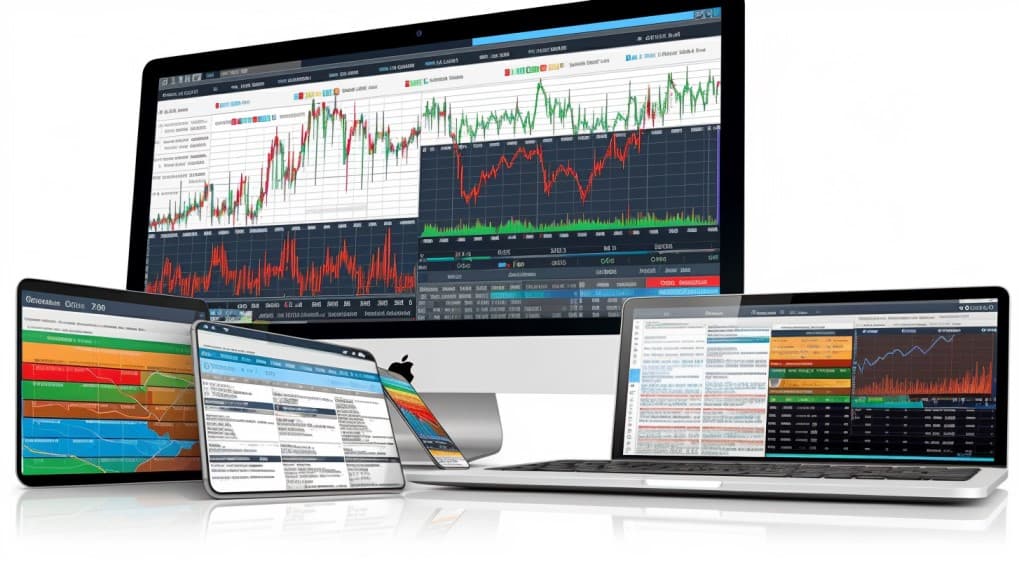
Can you short the QQQ | Shorting the QQQ
In the world of finance, ETFs (Exchange-Traded Funds) have gained significant popularity as investment vehicles. One well-known ETF is the QQQ, which tracks the performance of the Nasdaq-100 Index. As investors explore various strategies, one question frequently arises: Can you short the QQQ? In this article, we will delve into this query and provide answers to some commonly asked questions about shorting the QQQ.
Shorting the QQQ: Exploring the Possibility
Shorting an asset involves betting against its price by borrowing and selling it, with the intention of buying it back at a lower price in the future. While it is common to short individual stocks, shorting ETFs like the QQQ is a slightly different process.
To short the QQQ, investors can use various techniques such as short selling, buying inverse ETFs, or trading options. Short selling involves borrowing shares of the QQQ from a broker and selling them, with the expectation of buying them back at a lower price to return them to the broker. Inverse ETFs are designed to provide the opposite returns of the index they track, allowing investors to profit from a decline in the QQQ's value. Options trading allows investors to bet on the price movement of the QQQ without owning the underlying shares directly.
It is important to note that shorting any financial instrument carries inherent risks. The market can be unpredictable, and prices can rise unexpectedly, leading to potential losses. Therefore, it is crucial to thoroughly understand the risks involved and consider consulting with a financial advisor before engaging in any shorting strategies.
Can Shorting the QQQ Help Diversify Your Portfolio?
Shorting the QQQ can be seen as a strategy to potentially profit from a decline in the Nasdaq-100 Index. By shorting the QQQ, investors can hedge their existing long positions, potentially offsetting losses in their overall portfolio during market downturns. However, it's important to remember that shorting the QQQ, like any investment strategy, involves risks and should be approached with caution.
 QQQ overlap Can you short the QQQ?
QQQ overlap Can you short the QQQ?
Understanding the Risks and limitations of Shorting the QQQ
While shorting the QQQ can be a useful strategy for certain investors, it's crucial to be aware of the risks and limitations associated with this approach. As mentioned earlier, the market can be unpredictable, and prices may rise unexpectedly. If the QQQ's price increases instead of declining, short sellers may face significant losses. Additionally, shorting the QQQ may require margin accounts, which come with their own set of risks.
Alternatives to Shorting the QQQ
For investors who are hesITAnt about shorting the QQQ or want to explore alternative strategies, there are other options available. These include diversifying their portfolios with different asset classes, considering long-term investment strategies, or seeking the guidance of a financial advisor. Each investor's situation and risk tolerance will vary, so it is important to assess individual goals and objectives before making any investment decisions.
Shorting the QQQ can be a strategy for investors to potentially profit from a decline in the Nasdaq-100 Index. However, it is essential to understand the risks involved and carefully consider one's investment objectives and risk tolerance. It is recommended to consult with a financial advisor or conduct thorough research before engaging in any shorting strategies. Remember, investing always carries a level of risk, and it's important to make informed decisions based on individual circumstances.
Disclaimer: We are not providing any investment advisory services.
Source 1: QQQ issuer website
Source 2: Reuters article about QQQ
QQQ quote and analysis
Discover the top holdings, correlations, and overlaps of ETFs using our visualization tool.
Our app allows you to build and track your portfolio.
To learn more about the QQQ Invesco QQQ Trust, access our dedicated page now.
FAQ
Does QQQ pay dividends?
Yes, QQQ (Invesco QQQ Trust) pays dividends. As an ETF that holds stocks, it collects dividend payments from the underlying companies in its portfolio and distributes a portion of those payments to QQQ investors as dividends. However, it's important to note that the dividend yield of QQQ may vary over time.
What is QQQ ETF?
QQQ is an ETF that tracks the performance of the Nasdaq-100 Index. It aims to provide investors with exposure to the 100 largest non-financial companies listed on the Nasdaq Stock Market.
How to buy QQQ?
To buy QQQ, you can open an account with a brokerage firm that offers access to ETFs. This can be done through an online brokerage account or by contacting a traditional brokerage. Once your account is set up, you can search for the QQQ ETF using its ticker symbol and place a buy order to purchase shares.
Can QQQ go to zero?
Theoretically, any investment, including QQQ, can experience a decline in value and potentially become worthless. However, it is important to note that QQQ represents a basket of established companies listed on the Nasdaq Stock Market, which makes the likelihood of it going to zero highly improbable. Like any investment, there are risks associated with investing in QQQ, and it is important to consider your risk tolerance and diversify your investment portfolio.
How to trade QQQ?
QQQ can be traded like any other listed security on a stock exchange. To trade QQQ, you can place buy or sell orders through your brokerage account. The execution of your trades will depend on the prevailing market conditions and the availability of willing buyers and sellers.



